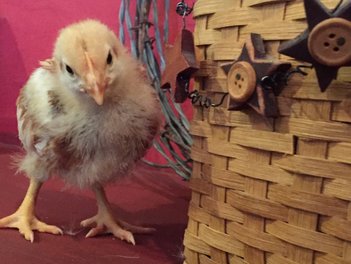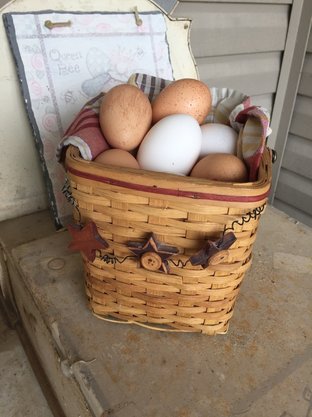
For many years now, we have grown our own chickens for meat and eggs. The broilers, or meat chickens, have always been the most rewarding animal to raise on our farm, as they supply the best meat that we have ever tasted. No matter how we cook it, either grilling, frying, baking, or the crockpot, it always comes out juicy and tender every time.
Growing boilers starts with a good breeder to order your chickens from. We order from Hoover Hatchery in Ruud, Iowa. They have the best prices and their chicks are always healthy with very little loss. We have tried other hatcheries, but Hoover is the one we like the best. No, we're not getting paid to promote their hatchery, We just found them to do a really great job. You may prefer another one and that is fine.
We have learned many things about raising broilers over the past few years that has made our lives so much easier and the birds lives much healthier. We used to house the birds in our chicken coop with our laying hens. It works out well until about week 3 when the broilers are getting so big and eating and pooping so much, that cleaning out a chicken coop every other day gets a little old. So, after lots of talking and reading, we built a chicken tractor to keep our broilers in. See the next page to see pictures and how it works. We also have developed an easy system to feed and water the broilers. Click the button below for more information.
Finally, our broilers only take eight or nine weeks until the reach five to six pounds. Compared to the whole chickens in the stores, ours our twice the size that they sell.
If you have any questions, feel free to call us or send it on our blog page.
Growing boilers starts with a good breeder to order your chickens from. We order from Hoover Hatchery in Ruud, Iowa. They have the best prices and their chicks are always healthy with very little loss. We have tried other hatcheries, but Hoover is the one we like the best. No, we're not getting paid to promote their hatchery, We just found them to do a really great job. You may prefer another one and that is fine.
We have learned many things about raising broilers over the past few years that has made our lives so much easier and the birds lives much healthier. We used to house the birds in our chicken coop with our laying hens. It works out well until about week 3 when the broilers are getting so big and eating and pooping so much, that cleaning out a chicken coop every other day gets a little old. So, after lots of talking and reading, we built a chicken tractor to keep our broilers in. See the next page to see pictures and how it works. We also have developed an easy system to feed and water the broilers. Click the button below for more information.
Finally, our broilers only take eight or nine weeks until the reach five to six pounds. Compared to the whole chickens in the stores, ours our twice the size that they sell.
If you have any questions, feel free to call us or send it on our blog page.
For more years then I care to count, I have grown laying hens. I started off with older hens that my children caught in the animal scramble at our county fair. These first chickens, taught me many things about how chickens grow, brood, lay eggs, survive in the het and harsh winters and which lay the most eggs.
My favorite chicken are called the Golden Commet. They are a very docile chicken and love to be held and follows people around just to be with you. They are sex link. They are part Rhode Island Red and Leg Horn. Best of all, they lay around 300 eggs a year. They are also a very hardy bird. They can handle the hot and humid summers in Nebraska as well as the negative temps in the winter.
My favorite chicken are called the Golden Commet. They are a very docile chicken and love to be held and follows people around just to be with you. They are sex link. They are part Rhode Island Red and Leg Horn. Best of all, they lay around 300 eggs a year. They are also a very hardy bird. They can handle the hot and humid summers in Nebraska as well as the negative temps in the winter.

